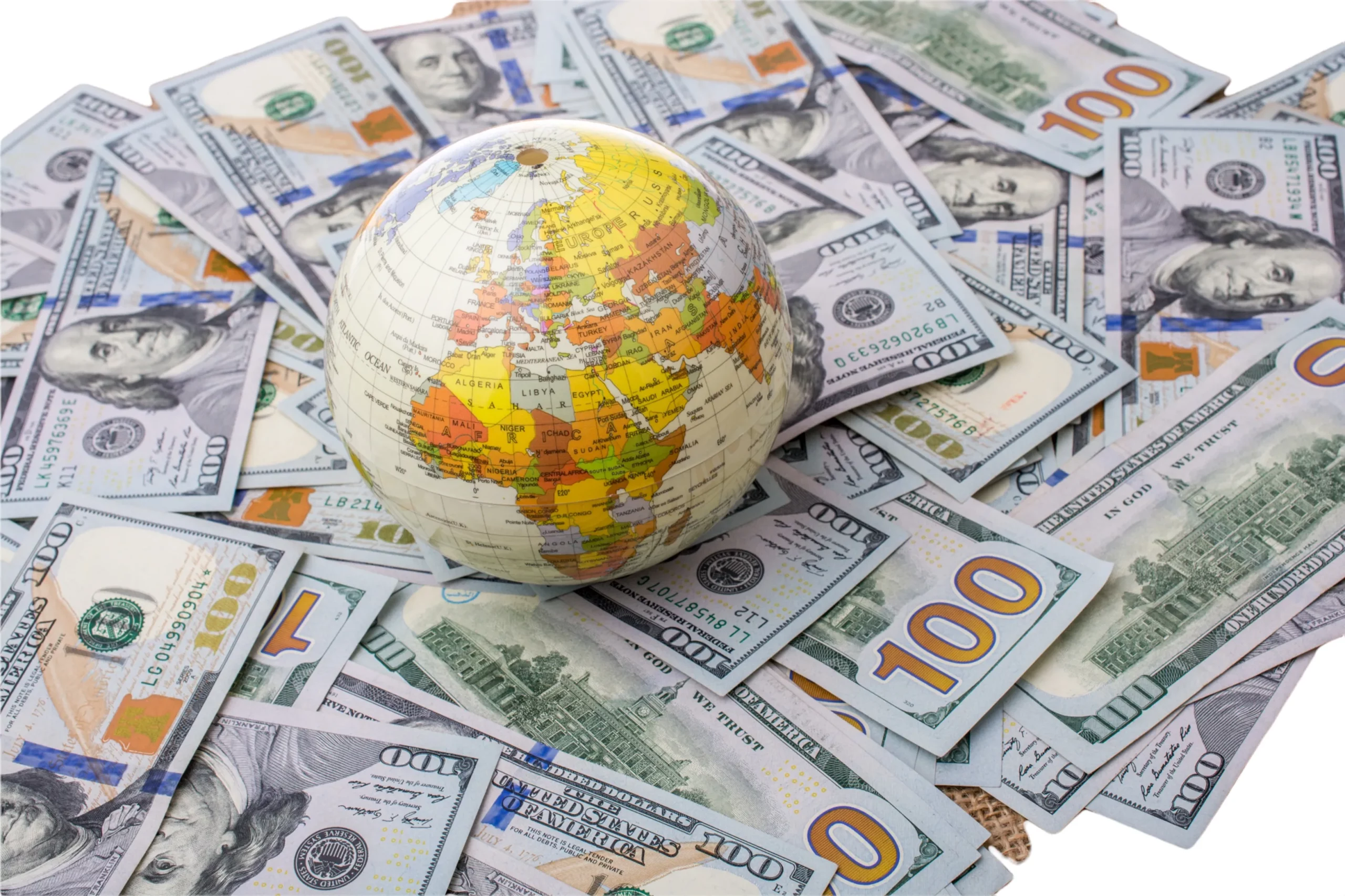The global financial system is supported by the U.S. currency. It has been the preferred currency for governments, corporations, and investors worldwide for an extended period, spanning from crude transactions to sovereign reserves. However, what would be the impact of a full-scale global conflict on the dollar’s dominance?
Would it continue to be the world’s preferred secure haven, or could conflict hasten the emergence of alternative currencies and economic systems?
A Concise Overview of the Dollar’s Reign
The dollar has occupied an unparalleled position in global finance since the conclusion of World War II. The U.S. dollar underwent the following transformations during the Bretton Woods system and beyond:
* **The world’s reserve currency**, accounting for nearly 60% of global central bank reserves * **The primary medium of international trade**, particularly for commodities such as energy and gold * **A symbol of stability**, supported by the political and economic influence of the United States
The U.S. wields immense power, not only economically but also geopolitically, with this dominance. This allows the United States to enforce sanctions, influence global monetary policy, and finance deficits by issuing debt that is avidly purchased by the rest of the world.
The game is altered by a global conflict.
The norms of global order would be rewritten by a Third World War, and the dollar’s supremacy would be confronted with numerous, concurrent challenges:
1. **Excessive Military Spending**
It is probable that the United States would significantly increase its defense expenditures, potentially through the use of debt. Inflation or devaluation may result if markets lose faith in the dollar’s long-term value.
2. **Trade Route Disruption**
The potential consequences of global conflict include the fragmentation of trade networks, the restriction of the dollar’s use in certain regions, and a decrease in the volume of international trade conducted in USD.
3. **Financial Weaponization**
The dollar has been employed by the United States as a geopolitical instrument, including asset restrictions, sanctions, and control of the SWIFT banking system. In the event of a global conflict, adversaries would escalate their efforts to circumvent this control by establishing alternative financial systems.
4. **The Emergence of Economic Blocs**
Parallel economic structures could be established by nations that are opposed to the United States. These structures could utilize alternative currencies, such as the Chinese yuan, the Russian ruble, or digital alternatives, to settle international accounts.
The Argument for Persistent Dominance
Even during times of war, the dollar’s capabilities should not be disregarded, despite these hazards.
1. **Deep and Liquid Financial Markets**
No other nation provides the same level of security and profundity in its capital markets. Historically, investors have flocked to U.S. Treasury bonds during periods of hysteria, which serves to bolster the demand for dollars.
2. **Institutional Trust**
**Trust** in the continuity of American institutions, the U.S. legal system, and the Federal Reserve is not the sole factor contributing to the dollar’s strength; it is also a factor in the economy. Despite the chaos of the world, that trust could still be of great significance.
3. **Inadequate Alternatives**
The yuan remains under strict control, and only a handful of other currencies provide the same level of stability, transparency, and convertibility as the dollar, despite the attempts of China and others to dedollarize it.
4. **Global Habit and Infrastructure**
The dollar serves as the foundation of the global financial system. Dollar-denominated systems are extensively invested in by governments, enterprises, and banks worldwide. It is exceedingly challenging to alter that overnight, particularly during a crisis.
The Future of Currencies in War: A Digital Challenge
In a world of war, fiat currencies such as the euro, yen, and yuan will serve a purpose; however, digital currencies may experience rapid growth.
* **Central Bank Digital Currencies (CBDCs)** may enable nations to circumvent U.S. oversight. * **Cryptocurrencies**, such as Bitcoin, may provide countries with sanctions or capital controls an escape route. * **Digital trade ecosystems** may be established by rival alliances using blockchain infrastructure, thereby reducing dependence on traditional banking rails.
Nevertheless, the dollar continues to be a benchmark in the majority of digital systems, as its gravitational influence is still significant.
Following the War: Should We Rebuild or Replace?
The dollar could become even more entrenched if the conflict concludes with the U.S. maintaining strategic dominance, as it did following World War II. The dollar’s central role could be reasserted through a post-war reconstruction endeavor organized by the United States and its allies.
However, if the conflict results in a multipolar world or a reduction in U.S. influence, we may observe the following:
* A financial system that is more regionalized, with trade blocs utilizing local reserve currencies. * A reduction in the dollar’s share of global reserves. * The establishment of a new international currency, which may be administered by a global consortium or through a digital framework.
In conclusion, this examination was unparalleled.
The dollar has endured crises, conflicts, and recessions. However, a global conflict would serve as its most severe examination to date—in terms of economics, politics, and symbolism. Fiscal policy is not the sole factor that determines whether it maintains its dominance. It is contingent upon the extent to which the old order endures and the global community’s readiness to construct a new system.
The dollar may continue to dominate in a world in which war is ongoing; however, it will not do so without opposition.

Leave a Reply